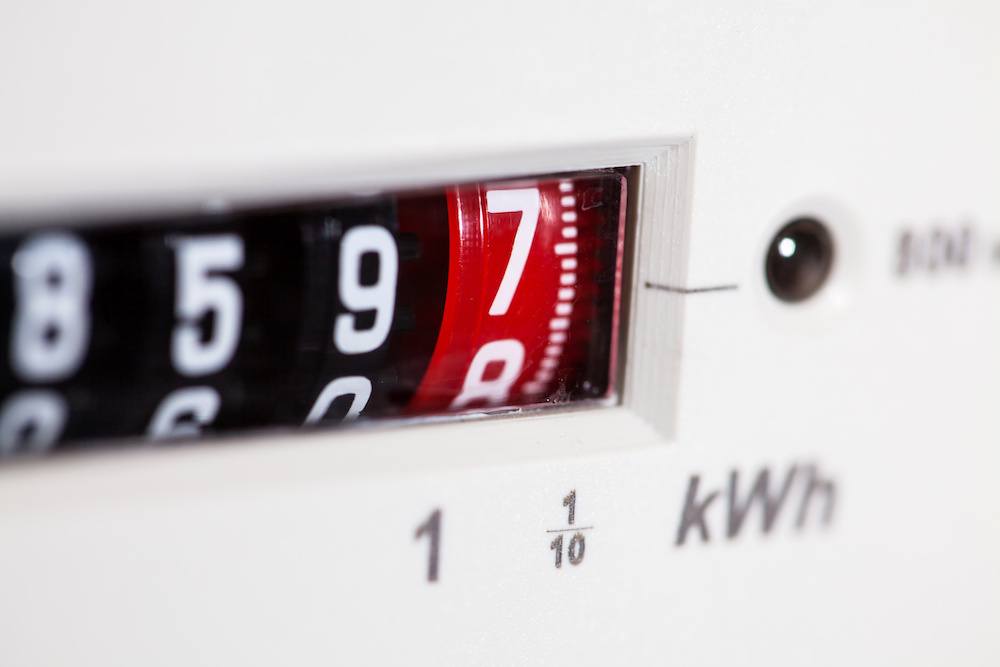
Energy prices in Belgium: towards another increase?
Since the economic recovery following the pandemic in 2020, the energy market has been under great pressure and, as a result, brought about a historic and spectacular inflation. What is the situation in 2022 and how big an impact can this increase of energy prices have on wallets in Belgium? Energyprice.be takes stock of the past 12 months.
Key information:
- + € 1,196.08 on the average annual gas bill (variation over twelve months)*
- + € 495.10 on the average annual electricity bill (variation over twelve months)*
The rise and fall of energy prices are sometimes a bit like a roller coaster. There are nerve-racking climbs, then dizzying descents, and little jolts from one peak to the next. Between April and September 2020, if you remember, we experienced one of these sharp falls. It was all over the media: electricity and (in particular) natural gas prices had reached new lows. The cause could clearly be attributed to the Covid-19 health crisis, but not only that. The mild temperatures over two successive winters combined with sunshine and favourable winds also played a role.
Compare now all energy suppliers active in Belgium and save money on your bill !
However, the situation does not seem as bright for our wallets at the start of 2021. Since the end of 2020, gas prices have risen again little by little, and electricity prices have kept pace. Energy prices have even reached their highest point in March 2022 as a result of the war in Ukraine. How will this inflation affect your finances? How does the government try to hold this increase back? What can you do to minimize the effects? To help you gain an insight, Energyprice.be has analysed the changes in energy prices over the past twelve months.
The gas price: annual bills up by an extra € 1,196 on average
Between the May 2021 and May 2022, natural gas prices rose by an average of 98.42 % in Belgium*. This means that the average annual gas bill in Belgium increased from € 1,215.28 to € 2,411.36.
In addition, when we look at the breakdown by Region, we can notice that the average gas bill went up by 84 to 112 %. Ths means that from May 2021 to May 2022, the three Regions reported an increase ranging from € 1,158.58 to €1,227.19:
- In Wallonia, the average annual bill leapt by almost 85 %, rising from € 1,366.28 to € 2,524.86;
- Meanwhile, households in Brussels saw an increase by 101.4 %, with annual bills rising from € 1,185.67 to €2,388.13 over the same period;
- Finally, Flanders recorded the biggest surge, with more than 112 % increase on annual residential bills, now reaching € 2,321,08, whereas they were € 1,093.89 in May 2021.
Note however that in order to hold back the historic increase of energy prices, the government has decided to reduce the VAT on gas to 6 % in Belgium from April 2022 onwards (until 31 December 2022). Furthermore, in order to better reflect the gas consumption of Belgian households, the CREG chose to redefine its standard annual consumption profile for residential consumers. Since 1 April, the average gas consumption of a family of 4 is set at 17,000 kwh a year instead of 23,600, which therefore applies to the above figures.
Discover all the energy suppliers promotions!
Compare electricity and gas prices and switch supplier for free in just a few clicks on Energyprice.be.
Despite this alarming increase over the past twelve months, it is important to put these events into context. Indeed, multiple factors lead to this historic rise in energy prices. Just think of the rise in prices on the wholesale markets resulting from the post-pandemic economic recovery, which caused the suppliers to pass the costs on to the consumers. Furthermore, gas supplies in Europe have significantly decreased, going from 75 % in October 2021 to 63 % at the end of December 2021. According to the roadmap of the European Commission, the storage level is about 30 %.
This decline of gas supplies is among other factors the result of the high demand, stemming on the one hand from the post-covid economic recovery and on the hand from the early cold snap that we experienced at the beginning of 2022. Subsequently, the war in Ukraine and the ensuing sanctions against Russia only deepened the crisis and forced the European Union to look for new partners for its gas supply.
The electricity price: your annual bill is € 495 higher
After the huge variation in the gas price, this “small” rise in the electricity price is almost a breath of fresh air. Belgian households are only seeing a 54 %* rise in their annual electricity bills, with the average bill rising from € 917.39 to € 1,412.49 between the months of May 2021 and May 2022.
If we examine the breakdown by Region, the difference varies between 47 and 63 %:
- Walloon households have seen their annual bills increase by € 518.95, rising from € 985.63 to € 1,504.58;
- In Brussels, households have reported an extra € 521.92 on their annual electricity bill, taking it to € 1,349.46 at the end of May 2021, compared to € 1,383,44 a year before;
- Flemish households have come off with an annual bill that has increased by € 444.43, rising from € 939.01 to € 1,383.44 in six months.
Keep in mind that, like with gas, the VAT has been reduced from 21 to 6 % until 31 December 2022 to combat inflation, this time since 1 March 2022.
Which energy supplier suits you best? Find it out with a simulation!
Will prices continue to rise?
The big question now is whether this rise will last, and, if so, for how long. That will depend on a number of factors, but a trend towards towards high prices unfortunately appears to take shape at the moment.
For gas, it might be assumed that the profound changes at the end of 2021 and during the first semester of 2022 will have long lasting effects on our consumption style, notably in terms of heating. As a result, it would not be surprising if prices stayed at a fairly high level for quite a while.
However, on 19 May 2022, the European institutions have reached an agreement stating that the gas supplies of the Member States will have to be filled to at least 80 % by November 2022 and 90 % in the following years. The countries which do not possess sufficient storage capacity will have to ensure that 15 % of their yearly supply is stored in another Member State. Moreover, the invasion of Ukraine by Russia urges the European Union to strike new partnerships in order not to depend as much on Russian gas anymore. These two elements could come brighten up a little what at first glance seems to be a grim reality.
For electricity, the role of renewable energies is becoming increasingly important. But, given that they rely on the weather conditions, trying to predict trends accurately would be pointless, especially since, in Belgium, the phasing-out of nuclear is bound to have an effect on electricity prices in the long term. Nevertheless, the current energy crisis could give a new impetus to the transition towards renewable energy sources and thus bring electricity prices down.
Combating prices increases: compare and switch contract!
Whether prices are rising or falling, one thing is certain: the only way to pay less for your energy over time is to compare your gas and electricity rates regularly. This is especially true if you have not switched contract for several years, as energy contracts that are more than a year old are sometimes renewed under unfavourable terms (see our article on dormant contracts). However, in the current climate, it is best to avoid paying more than the market average!
Fortunately, today, it is very easy to check your prices and switch contract.
- Firstly, visit CREG Scan, the federal regulator’s tool, to check whether your contract is more expensive than the market average.
- Next, use a certified price comparison site, such as Energyprice.be, to find another, more favourable contract and sign up instantly online. The good thing about our comparison tool is that it also includes the promotions offered by the different energy suppliers.
- Finally, get into the habit of checking your rates once a year. Remember that you can change contract whenever you like, without a cancellation fee, regardless of the duration of the initial contract.
Act now to limit the effects of the price increase on your energy bill, and find a new, cheaper contract!
Be careful, however:
If you have signed a fixed rate contract before November 2021, we strongly recommend you keep it until it expires. Indeed, as analysed throughout this article, the spectacular inflation that we have experienced for the past twelve months will work against you if you switch energy contracts.
*Based on the following standard consumptions:
- Gas: average consumption of 23,260 kWh per year until 30 March 2022, then 17,000 kWh per year (residential – T2 client type)
- Electricity: average consumption of 3,500 kWh (residential – Dc client type), single-rate tariff
Contact one of our advisers
Also read on our blog

You need your EAN code for virtually all procedures related to your energy consumption. So it’s useful to be able to find it easil…

The time may come when a consumer wishes to change their electricity meter, but sometimes this is imposed by the system operator. …

In Belgium, choosing to have a dual meter at home can offer several benefits on a few conditions. The first one is to consume duri…

Owing to the difficult circumstances that have hit Belgium and the rest of the world in 2020, many workers in the country had to e…
